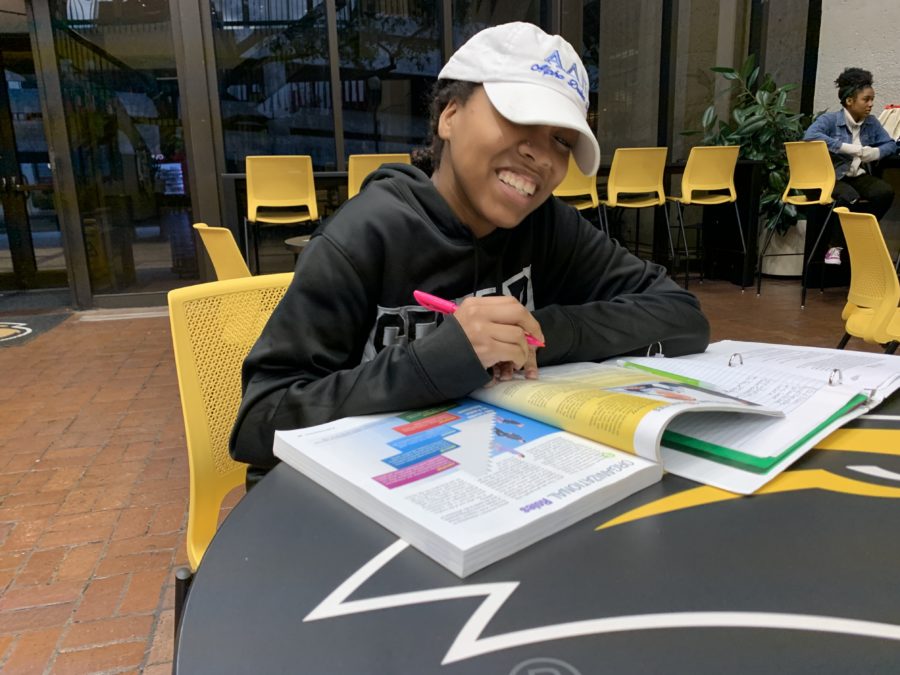It is said that every college student should study three hours outside of the classroom for every credit hour spent inside the classroom. Southern Miss requires students to take 15 credit hours to maintain scholarships, so students would be expected to study for a minimum of 45 hours a week.
For low-income students, it can be difficult to focus that much on school due to their financial situations forcing many of them to work full-time. Likewise, other low-income students find it difficult to focus on classwork due to stress about having to take out student loans.
According to the Chamber of Commerce, 60% of all students have some form of debt by graduation stacking up to $1.5 trillion in federal student debt owed by 44.5 million people. The average debt amount in 2016 for a student graduating being around $37,102.
Freshman social work major Jasmine Taylor said her parents did not want her to come to Southern Miss.
“My mom said I needed to figure out something since she wasn’t going to pay for anything, so like everything for Southern Miss I’ve been working since high school to pay for it,” Taylor said. “Every semester I have to think of new ways to actually pay for that semester.”
Taylor accepted around $6,000 of financial aid per semester, but still had to take out loans.
“The majority of the loans that I got were through ParentPlus, so if I never got those, I wouldn’t be able to attend school,” Taylor said.
Taylor said that when she gets paid, she puts half of her paycheck in savings and the rest into her checking account.
“I prioritize. If I know I got to pay for something, pay for it then so I don’t have to later,” Taylor said.
Taylor is currently receiving a scholarship from the New Student & Retention Programs office and mentioned TRIO and upperclassmen as support going through college as a first-generation college student.
Like Taylor, senior biology and Spanish double major Hayley White has had to support herself while at Southern Miss. In addition to taking 16 hours of class this semester, White works full-time as a waitress at Keg & Barrel.
“I don’t get involved much being a low-income student. Without my parents help, I have to work full time. I usually work 5-6 shifts as a waitress so it is kind of hard to balance,” White said.
White said even though her parents make too much money for her to receive adequate financial aid, they don’t help her financially.
“I have to prove to the state that I am financially independent from my parents. It’s just hard to provide all the references sometimes with the financial aid office. I’m trying to go to school, and it is an added stress with the office questioning me,” White said.
Although White often works 10-14 hour shifts on weekends, she said there are positives to working so hard.
“I make good money. Like some weekends I can make up to $400 off of tips. It really helps me pay for rent which I don’t get any help with,” White said.
With so many hours spent working, White said it can be hard to focus on school or to get involved in extracurricular activities.
“It would look great on my resume having extracurricular activities but I can’t afford it. It’s something that I’m going to have to take a hit on,” White said. “That’s why I try to do better on my grades because I’m hoping they’ll focus on that besides me not doing anything [extracurricular].”
Taylor and White both said other low-income students should learn to budget and become informed about the different offices that can help.
“You need to learn about financial aid, scholarships and loans. If you don’t, it’s harder in the long run,” White said.























